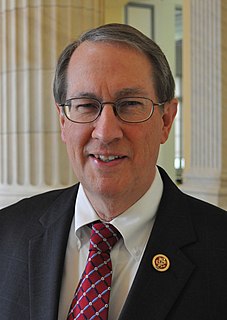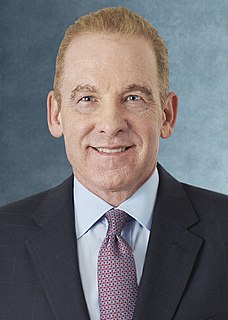Related Research Articles

The U.S. Securities and Exchange Commission (SEC) is an independent agency of the United States federal government, created in the aftermath of the Wall Street Crash of 1929. The primary purpose of the SEC is to enforce the law against market manipulation.

The Federal Election Commission (FEC) is an independent regulatory agency of the United States whose purpose is to enforce campaign finance law in United States federal elections. Created in 1974 through amendments to the Federal Election Campaign Act, the commission describes its duties as "to disclose campaign finance information, to enforce the provisions of the law such as the limits and prohibitions on contributions, and to oversee the public funding of Presidential elections."

Robert William Packwood is an American retired lawyer and politician from Oregon and a member of the Republican Party. He resigned from the United States Senate, under threat of expulsion, in 1995 after allegations of sexual harassment, abuse and assault of women emerged.

Robert William Goodlatte is an American politician, attorney, and lobbyist who served in the United States House of Representatives representing Virginia's 6th congressional district for 13 terms. A Republican, he was also the Chair of the House Judiciary Committee, which has jurisdiction over legislation affecting the federal courts, administrative agencies, and federal law enforcement entities. Goodlatte's district covered Roanoke and also included Lynchburg, Harrisonburg, and Staunton.

The United States Civil Service Commission was a government agency of the federal government of the United States and was created to select employees of federal government on merit rather than relationships. In 1979, it was dissolved as part of the Civil Service Reform Act of 1978; the Office of Personnel Management and the Merit Systems Protection Board are the successor agencies.
In the United States, Office of Inspector General (OIG) is a generic term for the oversight division of a federal or state agency aimed at preventing inefficient or unlawful operations within their parent agency. Such offices are attached to many federal executive departments, independent federal agencies, as well as state and local governments. Each office includes an inspector general and employees charged with identifying, auditing, and investigating fraud, waste, abuse, embezzlement and mismanagement of any kind within the executive department.

The Ethics in Government Act of 1978 is a United States federal law that was passed in the wake of the Nixon Watergate scandal and the Saturday Night Massacre. It was intended to fight corruption in government.

The Federation Council, or Senate, is the upper house of the Federal Assembly of Russia, according to the 1993 Constitution of the Russian Federation. Each of the 85 federal subjects of Russia – consisting of 22 republics, 46 oblasts, nine krais, three federal cities, four autonomous okrugs, and one autonomous oblast – sends two senators to the Council, for a total membership of 170 Senators. In addition, the Constitution also provides for senators from the Russian Federation, which can be no more than thirty, as well as (optionally) former presidents as life senators.

William Eldridge Frenzel was a Republican member of the United States House of Representatives from Minnesota, representing Minnesota's Third District, which included the southern and western suburbs of Minneapolis.

The President's Blue Ribbon Commission on Defense Management, informally known as the Packard Commission, was a federal government commission by President Ronald Reagan, created by Executive Order 12526 to study several areas of management functionality within the US Department of Defense. The commission was chaired by David Packard.

Malcolm Richard Wilkey was a United States Circuit Judge of the United States Court of Appeals for the District of Columbia Circuit and United States Ambassador to Uruguay.

The Mexican Secretariat of Public Security or Secretariat of Public Safety, also known as Ministry of Public Security and Ministry of Public Safety, was the federal ministry of the Mexican Executive Cabinet that aimed to preserve freedom, order, and public peace and safeguard the integrity and rights of the people. The Assistant Attorney General uses the Powers of the Union to prevent the commission of crimes, develop public security policies of the Federal Executive, propose policies on crime, administer the federal prison system, and administer justice to juvenile offenders based on the Organic Law of the Federal Public Administration and other federal laws, regulations, decrees, agreements, and orders of the President of the Republic. It had its headquarters in Álvaro Obregón, Mexico City.
Rudolf Mellinghoff is a German judge, jurisprudent and tax law expert who served as President of the Federal Fiscal Court of Germany from 2011 to 2020. He was justice of the Federal Constitutional Court of Germany in the court's second senate (2001–2011).
The Council of the Inspectors General on Integrity and Efficiency (CIGIE) addresses integrity, economy, and effectiveness issues that transcend individual Government agencies; and increase the professionalism and effectiveness of personnel by developing policies, technical standards, and approaches to aid in the establishment of a well-trained and highly skilled workforce in the Office of Inspector General. CIGIE was established in October 2008 as an independent entity within the United States executive branch by the Inspector General Reform Act (IGRA).

The Financial Stability Oversight Council (FSOC) is a United States federal government organization, established by Title I of the Dodd–Frank Wall Street Reform and Consumer Protection Act, which was signed into law by President Barack Obama on July 21, 2010. The Office of Financial Research is intended to provide support to the council.
The Commission on Economy and Efficiency was a presidential commission appointed by President William Howard Taft between 1910 and 1913 to look at and propose reforms for the United States federal government, particularly the presidential budget. It is also known in government reorganization and reform scholarship as the Taft Commission, however, this is a bit of a misnomer as the Taft Commission originally referred to the Philippine Commission of which Taft was the chairman. The Commission on Economy and Efficiency is most notable for proposing the first budget for the federal government but also is notable for creating the procedure for the President to establish a commission to study administrative reform.

Robert "Bob" J. Giuffra Jr. is an American attorney. He is Co-Chair and a partner of Sullivan & Cromwell in New York. He has served on Sullivan & Cromwell’s Management Committee since 2007.
Issue One is an American nonpartisan, nonprofit organization that seeks to reduce the role of money in politics. It aims to increase public awareness of what it views as problems within the present campaign finance system, and to reduce the influence of money in politics through enactment of campaign finance reform.

The following is a timeline of the presidency of Jimmy Carter, from January 1, 1978, to December 31, 1978.

The following is a timeline of the presidency of Jimmy Carter from his inauguration as the 39th president of the United States on January 20, 1977, to December 31, 1977.
References
- Executive Order 12668 - President's Commission on Federal Ethics Law Reform
- List of members
- Roberts, Robert North; Marion T. Doss, Jr. (September 1997). From Watergate to Whitewater: the public integrity war. Westport, CT: Praeger. p. 133. ISBN 0-275-95597-4.